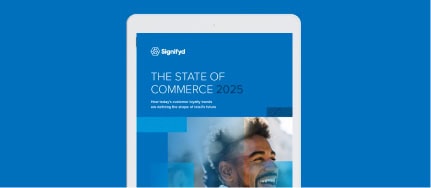Visa made some big changes five months ago to the way online brands may contest chargebacks brought by consumers requesting a credit-card refund under conditions a brand considers dubious.
The change to Visa’s Compelling Evidence rules came in response to a significant increase in first-party fraud — once known as friendly fraud. The idea behind the changes was to standardize the process and to give merchants a more predictable path to raising objections. The new rules also provide an opportunity to shift the financial liability from the merchant to the credit card issuer.
And how’s that working out? Glad you asked.
We now have the data. Well, some data. Signfiyd’s Tara Mitchell and DoorDash’s Nick Hoover will present early findings on Compelling Evidence 3.0 on Sept. 19, at MRC Santa Clara ‘23, a gathering of fraud and risk professionals.
DoorDash and Signfiyd run down CE 3.0 by the numbers
Mitchell, senior director, chargebacks & abuse recoveries, and Hoover, strategy and operations associate manager, will dig into before-and-after win rates in various retail verticals — including grocery, apparel, home goods and electronics. They’ll talk about whether the new rules are affecting small and medium-sized businesses differently from how they are affecting enterprise brands. They’ll look at digital goods and physical goods.
And they’ll have stories. MRC events work that way. They are incredible educational opportunities, both for those just learning about fraud and risk and for industry veterans. They are a chance to network and a chance to reconnect with long-time friends and former colleagues. And they are a chance to tell war stories — war stories in the corridors between sessions or over a meal or a drink at the end of the day.
Stories animate first-party fraud data
Of course, MRC events are also a chance to tell stories from the stage, stories that bring to life fraud data, best practices and the constant cat-and-mouse game between fraud and risk professionals and those who seek to defraud and otherwise take advantage of merchants.
Consider, for instance, food delivery and fraud. It’s a reminder that there are few bounds to the ingenuity of fraudsters and consumers with ill intent. If you can buy and sell it, someone can think of a way to steal it or illicitly squeeze the value from it.
Fraudsters’ cunning is boundless
With food delivery, it’s not so much that fraud rings are using others’ credit cards to buy a pasta dinner from that quaint Italian joint down the street so they can resell it on a marketplace. Although, don’t underestimate the criminal mind.
Instead food delivery fraud more often involves first-party fraud — the scourge that Visa’s new compelling evidence rules are meant to curtail. For instance, a customer might order a meal, eat it and decide it didn’t entirely hit the spot. Rather than work their way through the regular channels to have their complaint addressed, they take the easy route and file a chargeback saying the meal never arrived.
The DoorDash version of dine and dash
Or there’s the digital version of the old “dine and dash,” in which a diner would skip out on a check at a sit-down restaurant. Online, the miscreant doesn’t need to dash at all. They can simply finish up their meal and file a chargeback claiming they never ordered the grub. No need to even push away from the dining table.
Which is not to say there isn’t more industrial-sized fraud when it comes to the gig economy. Online food delivery services are targeted by unauthorized resellers, who go after non-perishable goods and set up a business reselling them at a profit.
There are operations with scores of stolen credit card numbers that insert themselves in the middle of food delivery — a classic triangulation scheme with a culinary twist. Customers order bargain-priced meals from, say, a social media site. The fraud ring fulfills the order with stolen financials and has the meal delivered to the customer.
And while the stories of criminals and hooligans are engaging, riveting even, the stories of how the best in the fraud business go about stymieing the attacks are the real value of an MRC event.
Photo by Getty Images
MRC Santa Clara ‘23 is open to MRC members – register here.









